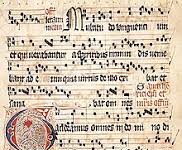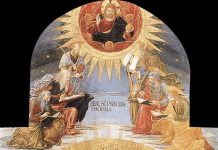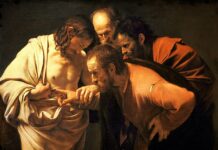Who was this Paul that we are celebrating his transformative meeting with the Risen Christ which left its indelible imprint in his life? When talking about the life and mission of St Paul the Apostle one has to establish a very important premise, namely, which chronology are we going to adopt? Shall we adopt Acts’ chronology or the one which we decipher in Paul’s Letters? Even if we take these two sources as sources of theology or for the message only, and not for their historical value, we still cannot eliminate chronology.
If we take Acts and just regard it as a source of information, we have to keep in mind that Luke did not write here a simple history as we normally understand. Much more than this, Luke wrote what is called a chrono-theology, that is, history itself as an instrument thanks to which God speaks about himself as well as about his own revelation.
On the other hand, if we take Paul’s letters themselves as sources we notice that the way we interpret certain texts, makes difference to the message itself. These sources do not give us an entire history but rather separate events, sometimes not even linked. From time to time these events do not even intermix. This is since sometimes Paul accentuates one aspect of a particular situation, while Luke in Acts constructs his story according to a literary plan and puts the events in agreement with that plan. In addition to that, the Letters were composed to tackle or reply to situations or problems which were embedded within the communities that Paul had instituted or those he was pastorally nurturing and caring for as an apostle. Hence, each and every piece of information has to be studied distinctively on its own merits.
God chose a person to serve him, Paul. But Paul had two names, namely a Jewish and a Roman name. Paul’s Jewish name was Shā’ûl, which means “looked for” [by God]. The Aramaic rendition of the name is Sheïla’ whereas in Greek in Saũlos. His Roman name was Paulus, which means “small”. In Greek his name was Paũlos. However this was rather the family’s name or cognomen. Being a Roman citizen Paul had most probably a triple name, that is a praenomen (title, name), a cognomen as well as a nomen (name). We are acquainted with the cognomen of his Roman name.
In his letters Paul likes to call himself as Paũlos. For instance, in the Book of the Acts of the Apostles Paul is known as Saũlos up to 13,9 whereas he gets the name Paũlos from 13,9 onwards. Thus, in 13,9 Paul is known by the two names. The probability is that he had his two names from birth. The shift from Saulos to Paulos in Acts 13,6-12 might have occurred from various sources which were available to Luke or else from the new period of Paul’s life. Previously Paul was an ardent Pharisee and used to call himself by the Jewish name. Afterwards he shifted to the Roman name when he started to proclaim the Gospel to the Gentiles, thus opening up to a universal audience and not restricted to a Jewish background.
From the Acts of the Apostles we know that Paul was born in Tarsus of Cilicia (Acts 22:3), precisely from a Jewish family (Acts 21:39; 22:3; Rom 11:1; 2Cor 11:22). He was from the Tribe of Benjamin like David was (Rom 11:1; Phil 3:5-6). Paul admits that he was of strict Pharisaic observance (Acts 26,5; Phil 3,5.6) He had a sister as well as a nephew (Acts 23:16) In Acts 22:3 Paul was brought up in Jerusalem.
What about his year of birth? Paul was most probably born at the kick off of the Christian Era. In the Letter to Philemon, which was written from prison in Rome, around the year 61-63 AD, Paul is called a presbútēs, in other words an old man, an elder. Within the Jewish tradition we find that zāqen is old man or elder. According to the treatise in the Jewish Mishnah which speaks of maxims and aphorisms of ancient ‘fathers’ or rabbis: analogous to the Book of Proverbs in the Old Testament, known as Aboth, a 60-year old man is considered an elder (Aboth, 5, 21). Then, the title zāqen points to the office rather than to the age of an ordained rabbi, irrespective of his age, as the Mishnah treatise Sanhedrin suggests. (Sanhedrin 14a). The date of Stephen’s death (36 AD) is a little complex.
Paul was brought up in the Jewish doctrine. He certainly featured as a leader in the persecution of Christians as well as a leading protagonist in the proclamation of the Gospel after the event on the Road to Damascus. However, in Acts 7,58 Saul is referred to as a neanías (describing youth, strength and vanity). Hence, Paul could have still been a 20-year old (Aboth 5, 21). Furthermore, it can be that Luke was employing the word neanías in the Jewish sense of ’élem, which means not only youth but, moreover, subordination. Paul was still an apprentice rabbi when Stephen’s death took place. He received Jewish primary education in Tarsus of Cilicia, in modern day Turkey.
Undoubtedly, as a Roman citizen, Paul must have had some sort of Greek education. We cannot overlook his tactful use of the Septuagint (the Greek version of the Hebrew Scriptures), his use of particular vocabulary in his letters, his style and ideas (e.g., Greeks and Barbarians, Rom 1:14; Col 3:11; Acts 28:2) confirm this education. Paul earned his living with the work of his hands by tent-making made of animal skins (perhaps for the Roman armies?). He earned his and his collaborators’ living (Acts 18:3; 20:34; 1Cor 4:12; 1Thess 2:9; 2Thess 3:8).
Intellectually he underwent higher formation in Jewish doctrine under Rabbi Gamaliel (Acts 22:3). It is thought that Gamaliel taught in Jerusalem between 25-50 AD. Paul did great strides in Jewish doctrine and became prominent among the Jews but most probably did not receive rabbinic ordination (around 40 years). His youth was a normal one. Most probably Paul remained celibate: In l Cor 7:8 he admits: To the unmarried and the widows I say that it is well for them to remain unmarried as I am.”
Paul did not meet Jesus in person and neither did he persecute him personally As the Book of Acts tells us, Paul’s involvement in the persecution campaign initiates at Stephen’s death (7:58; 8:1). It can well be that Paul took part in the prolonged hostility against Christians that brought about this death. Later, he took part in the lengthy period of persecution that followed. Paul’s conversion did not happen shortly following Stephen’s death. Luke himself details that following Stephen’s stoning, the Church expanded in Judea, Samaria and in Damascus (Acts 8:1; 9:2). That was the purpose why Paul was heading to Damascus after inflicting damage within the Church in Palestine (Acts 8:3). If Stephen’s death took place at beginning of Winter 36-37 AD, then Paul’s conversion was effected towards the conclusion of that Winter.
The Damascus Road Event was it a conversion, a Call or a transformation within the life of the brave Paul? Within the context of this persecution: Paul was going to Damascus for his routinely expedition of capturing Jewish Christians, having them brought before the Sanhedrin to be condemned. Let us not forget that every now and then, the Romans permitted to the Sanhedrin some rights upon the Jews outside Palestine.
On that famous day which changed his life completely, as he was approaching the city, Paul had a Christophany of Jesus that left him blind and weakened. Vulnerable as he was from this powerful divinely encounter, he was accompanied to a certain Judas, on Straight Street. Three days after the Lord healed him through the hands of the disciple Ananias. As his health was once again restored Paul received his mission.
Immediately he started to proclaim that Jesus was the Messiah. Yes! His experience on the Road to Damascus was an utter transformation in Christ Jesus! He saw Jesus in the new light of resurrection as Lord of all creation, and no more as the curse upon Israel (Dt 21:22-23). Now, for Paul, the reading of Dt 21:22-23 which says: for anyone hung on a tree is under God’s curse. You must not defile the land that the LORD your God is giving you for possession was now finally and definitely superseded.
Reflecting upon this extraordinary grace of God, in the letter penned by himself to the Galatians, Paul saw this as a prophetic call. He wrote: When God, who had set me apart before I was born and called me through his grace, was pleased to reveal his Son to me, so that I might proclaim him among the Gentiles, I did not confer with any human being (Gal 1,15-16). Are not these the same words, verbatim, which Jeremiah himself uses in his own call when he wrote: Before I formed you in the womb I knew you, and before you were born I consecrated you; I appointed you a prophet to the nations (Ger 1:5)?
Let us be clear about an essential point here: on the Road to Damascus, Saul did not go through some psychological or moral conversion. In fact, his conscience didn’t prick him at all regarding how he was living his religion. In his letter to the Philippians, Paul writes: Circumcised on the eighth day, a member of the people of Israel, of the tribe of Benjamin, a Hebrew born of Hebrews; as to the law, a Pharisee; as to zeal, a persecutor of the church; as to righteousness under the law, blameless (Phil 3:5-6). The reality is that on the road to Damascus, Saul experienced a transformation and a prophetic calling.
In his homily St John Chrysostom helps us understand the powerful, transforming and far-reaching beneficial consequences of Paul’s call on the Road to Damascus. He writes: Paul, more than anyone else, has shown us what man really is, and in what our nobility consists, and of what virtue this particular animal is capable. Each day he aimed ever higher; each day he rose up with greater ardour and faced with new eagerness the dangers that threatened him. He summed up his attitude in the words: I forget what is behind me and push on to what lies ahead. When he saw death imminent, he bade others share his joy: Rejoice and be glad with me! And when danger, injustice and abuse threatened, he said: I am content with weakness, mistreatment and persecution. These he called the weapons of righteousness, thus telling us that he derived immense profit from them.
In this perspective I can more and more appreciate Paul’s great challenge to you and me who are living in this world today: Be imitators of me as I am of Christ (1 Cor 11:1)!












